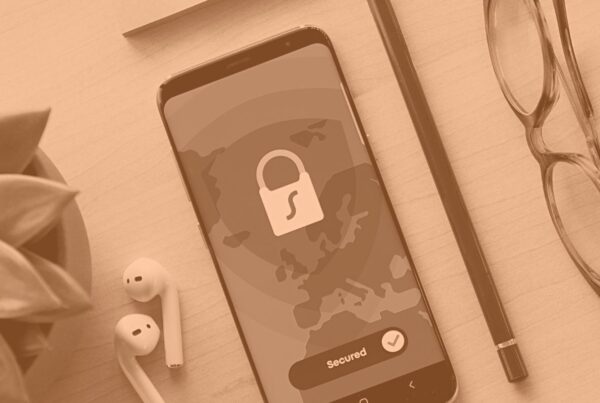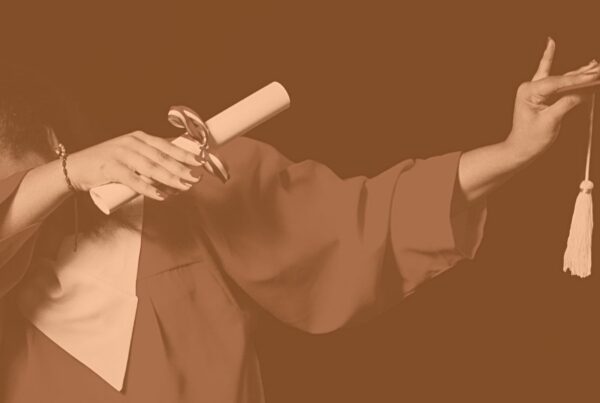In-person events might be back, but some things in the events industry are not going back to how things used to be before the pandemic. Take online supplier relationships, for example. It’s a relatively new phenomenon in the industry, but now that the Event Brew team got a taste of it, they refuse to go back.
The digital world is teeming with opportunities to build relationships. Not to mention online platforms make those who are less extroverted feel more comfortable. However, some are not as inclined to build online supplier relationships. Why not? Tune in and find out.
Event Brew Loves Online Supplier Relationships
While doing business online has become completely normalized by now, the Brew Crew wonders about building genuine relationships. Can you actually build strong online supplier relationships?
“That was one of the transformations that came about in the past two years,” says Deanna. “I started going all-in on online networking. 75% of the relationships I have now have been established online.”
“I love being in this world where it’s acceptable to do everything online,” says Dustin. “I love not spending my day traveling from meeting to meeting. Being online has not damaged any of my partnerships or my relationships. If anything, it’s better because we can all be more efficient with our time. There’s a time and a place when we all get to see each other and that can be more celebratory as opposed to just constantly being buried in the work. I’m all for continuing to build online supplier relationships. I don’t see what the big deal is.”
Virtual Environment Introduces, In-Person Solidifies
“What people are saying is that online is not as potent – not that it is impossible,” adds Nick. “This is where the conflation happens. There are a lot of opportunities to mingle with both of them. The best-case scenario is a relationship that starts online and is then solidified by in-person. Afterward, it remains vibrant and alive digitally.
Deanna agrees. When you meet people in person who you’ve connected with virtually already, you have that context already. You have a base to build from.
It also makes going to in-person events a lot better because I’ll be seeing somebody I already know. Whereas otherwise, I might feel awkward because I wouldn’t know anybody. What do I do? Do I give them my card? I don’t know if they want to be friends with me. First, you have a low-pressure virtual environment to ease into it and then in person, you can solidify your supplier relationships.
Not All Event Profs Are Extroverted
Nick points out that not all suppliers or vendors are interested in doing business in person. “In an online world, there is an opportunity for certain people who are not extroverted to actually thrive exclusively online. Otherwise, they might’ve been left out. This is something that I’ve been thinking about a lot for the last couple of years: in-person event professionals design events for themselves. They have such an overwhelming bias towards extraversion.”
“I can’t tell you how many times I’ve had somebody ask: ‘How do we force people to network?’ We shouldn’t force anybody,” agrees Dustin.
“Here in Alberta, my supplier relationships have been stronger than ever,” he continues. “They are the ones that are really good at digital communications. The ones that thrive remotely. And I can now start to think of some suppliers that I don’t think we’ve worked with post-COVID, because they really depend on sit-down meetings. I’m actually going to those people less because that’s not the way I want to work. I want it to be seamless and online.”
Online Supplier Relationships As An Equalizing Force
“Going to a digital-first scenario is an equalizing force in terms of access,” says Deanna. “Think of all the companies that cannot afford to go to a SmartMeetings event or any type of hosted-buyer scenario where they’re talking $10,000 and more. Now obviously, there are plenty of planners and organizers that aren’t online that you may not be reaching, but I think that number is getting smaller and smaller by the day.”
“Take LinkedIn lurkers, for example. Even if you’re not exchanging with them, they’re seeing what you’re putting out there. It’s giving more opportunity to people who were not so strong in person or just didn’t have the opportunity to go to some of these events and sell their products and services,” she adds.
Don’t Forget To Stand Out!
“You need to find more polished and creative ways to get your product across,” says Dustin. “If you’re a supplier and you’re in this predicament, there’s a huge opportunity, especially in the events industry, to find a way to make those first contacts in that initial presentation really exciting. And if at the end of the day, you don’t have a gazillion dollars to turn your entire product mind digital, at least make sure what you’re doing is really polished, interesting, and specific to the person that you’re sending it to.”
Conclusive Thoughts
“Digital-only works,” concludes Nick. “But the pushback comes from the sales world. They need to change people’s minds and educate them. If you can figure out how to transfer those skills to digital, then you’ve got everything going. What’s been done in in-person sales should be converted to more of an education-first platform. That has absolutely every opportunity to thrive online.”
Dustin shares one final anecdote. “A few years ago, any large RFPs that we were responding to, we immediately asked them if we do this presentation in person. And if they said no, we thought long and hard about whether it was going to fit into our schedule to do the incredible amount of work. That has changed to now saying that we don’t do that in person anymore. But you do learn a little bit about the client, especially at the initial phase of inquiry. If they expect you to take weeks to put together their proposal and not give you 60 minutes of their time to present it online, it tells you a lot about the way that they’re running their business.”
“There are hundreds of new ways that you can connect with people online,” says Nick. “It’s certainly never been a better time to create a community. Take the ideals of inbound marketing and apply those to sales. Become more of an inbound salesperson by making yourself an educator first and creating some altruistic magnetism that brings people to you. So you’re seen as someone who is an answer person and not a person who sees you as a lead.”








